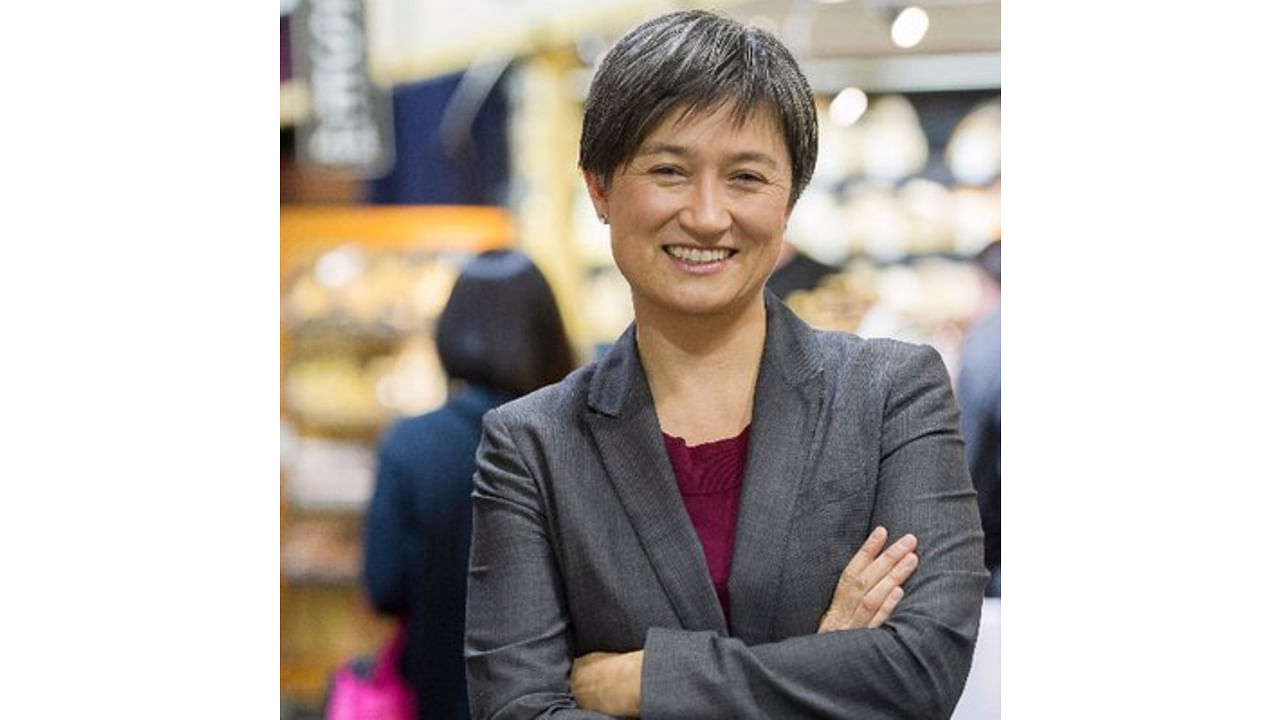
Describing India as an Indo-Pacific power, a top Australian Opposition politician on Monday backed further strengthening of relations between New Delhi and Canberra by doing more than simply navigating the "slipstream of great power competition" to shape the region's future.
Penny Wong, the Opposition foreign affairs spokeswoman, while speaking at an Australia-India Leadership Dialogue held here, said ''It is true that the growing strategic competition between the US and China is the defining narrative of these times. It warrants our attention, but not always in the way it is given.
"The strategic competition in our region means we need to think carefully and engage actively to avoid becoming collateral," she said.
Australia must "do more than simply navigate the slipstream of great power competition” and strengthen ties with India to shape the Indo-Pacific region “we want”, she said.
"We must do what we can to shape the region we want,'' she said, adding that India was a crucial part of the multipolar region Australia wanted.
The US and several other world powers have been talking about the need to ensure a free, open and thriving Indo-Pacific in the backdrop of China's rising military maneuvering in the region.
The US has high stakes in the South China Sea and it has asserted its right to free passage on international sea lanes. China claims almost all of the strategic South China Sea as its territory while Taiwan, the Philippines, Brunei, Malaysia, and Vietnam oppose Beijing's claim.
Highlighting the converging interests between India and Australia, Wong said ''as the world’s biggest democracy, it is no surprise that India not only values the global rules-based order but seeks to strengthen and shape it in its own right.''
''We have a common interest in being constructive internationalists in our region and in the world,'' the Labor party leader said.
"Australia’s relationship with India is central to the region we want and we have a strong stake in each other’s prosperity and security,'' she added.
"Australia not only shares democratic values with India. Our growing economic and business links mean we have a stake in each other’s prosperity,'' she said.
"'But we also have converging strategic interests and a shared desire to shape our region. India and Australia can give form to these converging interests not only through inclusive regional institutions that promote economic integration and resilience.''
Wong said that Australia should be wary of the notion that there was a binary choice between India and China.
''We should avoid glib analysis. India is not 'the new China'. India is charting its own course, maximizing its strategic autonomy, asserting its interests and unlocking its economic potential. India is leading the way in its immediate neighborhood," she noted.
She called for the two sides to 'draw on shared interests in the region’s security and prosperity which will ensure new economic opportunities.
Wong told the audience that Australia was also well-placed to meet India’s economic aspirations and its demand for better goods and services.
"I don’t think anyone would doubt that our trade relationship has untapped potential. As our fifth-largest trading partner, two-way trade reached 29.1 billion Australian dollars, a significant way behind China which stood at 194 billion Australian dollars and Japan which stood at 77 billion Australian dollars".
Referring to the former Australian High commissioner Peter Varghese’s comprehensive India Economic Strategy, Wong said ''we should also be taking advantage of India’s growing innovation and technology credentials.''
During her speech, Wong also pinpointed the Jammu and Kashmir issue saying ''We encourage the peaceful settlement of the final status of Jammu and Kashmir, underscored by the protection of human rights that will ultimately ensure the region’s stability and economic recovery.''
Wong dubbed the understanding between the two nations as shallow and called for amplifying efforts including boosting India-literacy in Australia and to take advantage of the 700,000 Indian-Australian diasporas by elevating their voices in discussions.
"We look to India for a partnership not based on transactions but based on strengthening each other and strengthening our region. India’s character as a secular, liberal democracy is central to the way Australia imagines this partnership with India,'' she said.